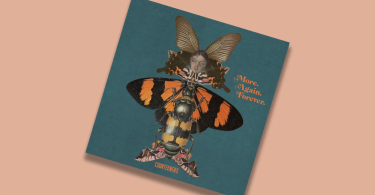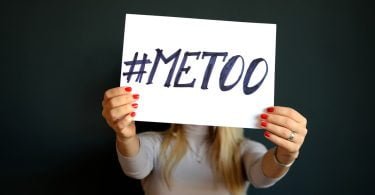Robin Thicke’s ‘Blurred Lines’ has been banned at a whopping 20 universities in the UK due to claims that it promotes rape and sexual violence towards woman but
Robin Thicke’s ‘Blurred Lines’ has been banned at a whopping 20 universities in the UK due to claims that it promotes rape and sexual violence towards woman but is it right to ban a song?
The blurred lines of censorship
Censorship is a funny one. While us Brits do like to promote freedom of speech, we also don’t like offensive things being said. In a country that bleeps out the word ‘sex’ in radio edits of popular songs, we are proud of the fact that we are allowed to say whatever the fuck we want.
From the fictitious book burning of Bradbury’s Farenheit 451 and the destruction of books in Orwell’s 1984 to the book burnings in Soviet Russia and the word ‘censorship’ being censored in China, humanity is certainly no strange to being shielded from the harsher truths of life. But we’re picky. We censor some things and allow others. Instagram, for example, bans any form of nudity but allows pro-anorexia and pro self-injury content. Facebook bans nipples yet refused to condemn a video of a woman being beheaded that went viral not so long ago.
The blurred lines (get it?) between what is okay and what is not are nothing new, so we should hardly be surprised that Thicke’s controversial song is being banned when there is much worse out there.
Because that’s the point, isn’t it? Thicke may be slimy but you only have to listen to Eminem’s music (I recommend the Relapse album for some truly innovative uses of an umbrella) to be reminded that sexual violence and misogyny within the music industry is nothing new. Hey, even our favourite grandpa is guilty! She stood there laughing. I felt the knife in my hand and she laughed no more. My, my, my, Delilah.
The ban: Is it really worth it?
Truth is, our own lines are blurred. We wax lyrical about how Lily Allen is objectifying black women yet no one blinks an eye when 50 Cent parades them around his ‘Candy Shop,’ and think nothing of sites like The LAD Bible, which add far more to this rapey ‘LAD’ culture than anything Robin Thicke can do!
Universities have explained that they have chosen this song because it is so popular that it helps them make a stand against rape culture and really show that it is not acceptable, but I would hesitate in making such a stance about ‘Blurred Lines.’ Why? Purely because of its publicity. There are a hell of a lot of people who see nothing wrong with the song, and banning it only adds to the scary feminist stereotype that we feminists are trying to break away from.
How are we ever going to convince people that feminism isn’t all theatrics and man-hating when we ban a song that many people see nothing wrong with? It isn’t as though we have definitive proof that the song is even about rape. Thicke has said it’s about his wife, even calling it a ‘feminist movement within itself’ due to the line ‘that man is not your maker.’
It is not for me to say whether this song is feminist, misogynist or whatever else because it is down to interpretation. The lyrics can be interpreted in one of two ways and it is not right to cherry-pick the lines that agree with a certain agenda and ignore the rest (something both Thicke and his opposition are guilty of).
Is it the lad culture or hypocrisy?
I agree that we have a problem with ‘Lad Culture’ at the minute that does objectify women. My hackles do rise when I see women referred to as ‘wenches’ on The LAD Bible and guys referring to their own girlfriends as a ’6/10′ openly.
I hate hearing lads talk about having sex with the ‘ugly one’ because she was more ‘up for it’ and I hate seeing girls’ naked pictures shared on the internet for all to see. I hate the fact that ‘Rate My Shag’ pages ever existed and I hate the idea that people still hold, whereby if a girl sleeps around she is a slut, verses a guy doing it is a ‘LAD.’
It is these things that are damaging to us ladies, not Robin Thicke being a prick. Arrogant boys will always believe that a woman flirting with them equates to consent, and she ‘she wanted it’ excuse will always be given as a defence to rape in court. Banning ‘Blurred Lines’ will do nothing to stop that.
However, I don’t want to sound too negative about it. Even though I think that the vendetta against the song is misdirected and should be aimed at any of the aforementioned, I do think it a positive thing that not only are students campaigning for something (rather than just getting drunk and not giving a rat’s arse), and I also think it positive that the unions are listening and showing and enthusiasm to combat potentially damaging things such as this song.
My university is contemplating whether or not to ban the song, and while I think it quite sweet that they’re donating some time to think about rape culture, I’d much prefer that they dedicated their time to instructing their counsellors not to ask what victims of sexual assault were wearing on the night of their assault.
Because that’s it. The hypocrisy. ‘Blurred Lines’ may be banned but we still have sexism running rampant across university campuses all over the UK, there are still many songs out there about the rape and murder of women, and my friend still got blamed by my university for her sexual assault.
What do you think? Are universities right to ban Burred Lines? Have your say in the comments section below.
Image: Kia Clay








